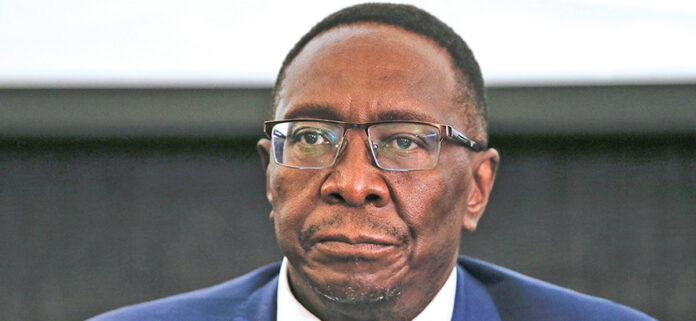Occasionally, a policy change emerges with the potential to significantly alter the landscape.
The Gauteng Division of the High Court’s new mediation protocol, launched in April 2025 under Judge President Dunstin Mlambo, is one such shift — at least, that’s what we’re told.
On the surface, it’s being billed as a radical reimagining of how South Africans resolve disputes in the civil courts.
In reality, it’s a set of rules designed to get people talking before they start fighting and to nudge the mountain of pending cases toward something resembling motion.
Let’s be honest: South Africa’s courts, especially those in Gauteng, have become the legal equivalent of a traffic jam on the N1.
Justice delayed is justice forgotten
Civil trials take years to conclude. People wait, and wait, and then wait some more. Legal fees pile up, tempers fray, and the idea of “access to justice” becomes a distant slogan rather than a lived reality.
The usual suspect clogging the roads? The Road Accident Fund (RAF), which features so regularly in personal injury cases that it’s practically a resident in the courtroom.
In the not-so-distant past, if you had a dispute — over money, family, or a crash on the highway — you had only one real avenue: drag it through the courts.
The process was slow, expensive, and emotionally draining.
The absence of workable alternatives meant litigants either braced themselves for a marathon or simply walked away, leaving justice on the side of the road.
“Justice delayed is justice denied,” we often say. In South Africa, it might be more accurate to say, “justice delayed is justice forgotten”.
Enter court-annexed mediation. The new protocol is meant to change all that by insisting — firmly, if not unkindly — that parties at least try to talk before they fight.
Mediation means sitting down with a neutral third party, known as a mediator, and hashing out a solution before the whole thing explodes into a full-blown legal battle.
It’s faster, it’s less adversarial, and it’s usually cheaper.
RAF agrees to pay mediator’s fees
Under this protocol, mediation is now compulsory for all civil trials in the Gauteng Division of the High Court — unless you can persuade the court that your case is so special that talking simply isn’t an option.
Perhaps the biggest surprise is that the RAF has signed up for this, at least in theory.
It has even agreed to pay part of the mediator’s fees — an unexpected act of generosity from a fund not exactly known for its largesse.
The protocol comes with strict timelines, reporting requirements, and even penalties for those who drag their feet.
If you miss a deadline, there could be consequences. If you refuse to participate in good faith, there will be notes on your file.
For the average South African, this should mean quicker resolutions and lower legal bills.
Whether you’re fighting over an inheritance, seeking compensation after a car crash, or navigating a business dispute, mediation offers a chance to move on with your life without endless court appearances.
Legal battles are famously expensive: lawyer’s fees, expert opinions, and time off work. Mediation simplifies the process.
Rare win for claimants
The RAF’s willingness to shoulder some costs is a rare win for claimants who might otherwise have given up in despair.
The protocol has another bonus: by diverting disputes away from the trial docket, courts are freed up to focus on the handful of cases that truly need a judge’s attention.
If mediation works as promised, we may see trial dates actually being honoured rather than postponed to oblivion.
Here’s where the air grows slightly thinner. For all the talk of transformation and access, South Africa’s legal system hasn’t exactly covered itself in glory.
Years of case backlogs, inconsistent attempts at alternative dispute resolution, and a lack of trained mediators have left plenty of people on the outside looking in.
Mediation as a concept isn’t new, but until now, it’s been more aspiration than reality — a boutique offering, rarely used and poorly understood.
The new protocol aims to fix this by laying down clear rules, accreditation standards, and robust enforcement.
Mediators will have to be properly trained and certified, and mediations must wrap up in 30 days, give or take.
Commitment to mediation is admirable
Diversity in mediator selection is baked in, nudging the legal system toward South Africa’s broader transformation project.
The judge president gets regular reports, and the entire enterprise is under scrutiny, with an eye to improvement.
But for all the optimism, caution is warranted. South Africans are nothing if not suspicious of new rules, especially those that threaten the comforting rituals of the adversarial system.
Some parties will dig in their heels, preferring the slow grind of litigation. Others may struggle with the logistics — finding the right mediator, getting everyone to the table, and absorbing the costs.
And, of course, the RAF’s perennial financial woes remain a wild card. Their commitment to mediation is admirable, but whether they can actually deliver is another matter.
Still, this protocol is more than just a tweak to court procedure. It’s an attempt to drag South African justice into the modern era by putting dialogue and collaboration at the centre.
Will it succeed? Only time will tell. But for now, there is reason — however cautious — for hope that the wheels of justice might at last begin to turn a little faster, and perhaps even a little fairer.



